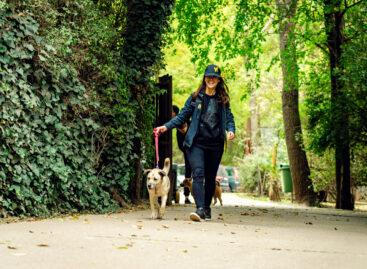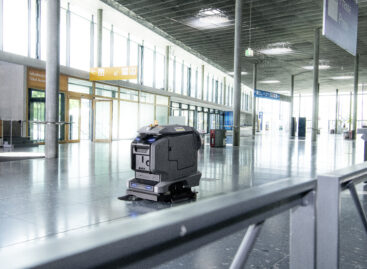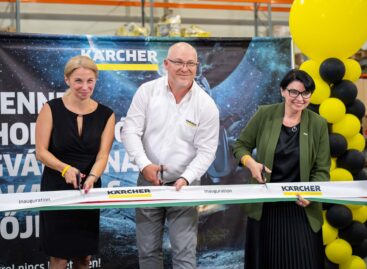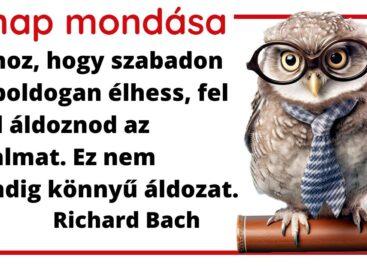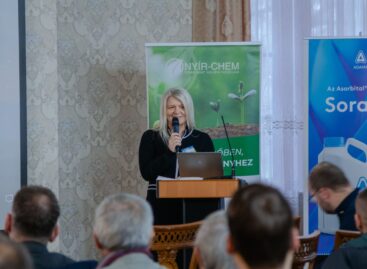Preservation of value with modern cleaning technology: the stairs of the Batthyány Mausoleum have been renovated
The cleaning technology expert Kärcher continued its KlinArt program in Hungary by cleaning the steps of the Batthyány Mausoleum located in the Fiumei út cemetery. The company has already proven its commitment to the preservation of cultural heritage in more than 200 projects worldwide, and Kärcher Hungary launched the initiative this summer by cleaning the stairs of the Museum of Fine Arts and creating a special, inverse graffiti.
Kärcher’s Hungarian KlinArt program continued at a special location, the company’s specialists cleaned the stairs of the Batthyány Mausoleum in the Fiumei út cemetery using the company’s high-pressure equipment. During the cleaning, hot water, high-pressure technology was used, which removes dirt without chemicals, using only hot water and steam.
The central element of the company’s philosophy is value preservation, and it continuously strives to contribute to the maintenance of our cultural values with the help of modern technology, while creating an inspiring and more livable environment for urban communities. Kärcher Hungary launched the KlinArt program this summer, the first project of which was to clean the stairs of the Museum of Fine Arts from dirt that had accumulated over the years on June 2, in preparation for the Night of Museums. The dirt was removed using only hot water and steam, during which an inverse graffiti was also added to the stairs, which was the inscription “Ars longa, vita brevis” (Art is eternal, life is short).
After the Museum of Fine Arts, Kärcher Hungary agreed with the Fiumei út cemetery on a value-preserving cleaning, where a part of an iconic building can be renewed with the help of hot steam. By cleaning the stairs of the Batthyány Mausoleum, it is not only drawing attention to the importance of nurturing our traditions and preserving our historical buildings and monuments, but also to the importance of cooperation. The original grave of Count Lajos Batthyány was not in the Fiumei út cemetery. Following his execution on October 6, 1849, the authorities at the time planned to bury the first Hungarian prime minister in an unmarked grave in the old Józsefváros cemetery, but fortunately, the body was smuggled out of the cemetery and hidden in the utmost secrecy in the crypt of the Franciscan Church on what is now Ferenciek Square, where he rested until 1870. After the Austro-Hungarian Compromise of 1867, it became possible to bury him in a dignified manner, when he was transferred to the Fiumei út cemetery. The mausoleum did not yet exist at that time, and in 1870, Lajos Batthyány was buried in a much simpler grave. A collection was announced for the construction of a worthy tomb, which was eventually completed entirely from public donations between 1872 and 1874 based on the plans of Albert Schickedanz, who later designed the Millennium Monument on Heroes’ Square, the Art Gallery and the Museum of Fine Arts.
As a cleaning expert, Kärcher is committed to supporting the long-term preservation of historic buildings and monuments and the restoration of their original beauty. The company has already proven its commitment and expertise in the protection of the world’s cultural heritage in 200 international projects worldwide. Previously, the Aachen Cathedral, Mount Rushmore, the Christ the Redeemer statue in Rio and the colonnade of St. Peter’s Square in the Vatican were cleaned with the help of Kärcher experts.
Kärcher Hungary’s new social responsibility project, KlinArt, is part of the international initiative launched by the company on the occasion of its 90th anniversary: during the program, 90 historical, cultural and world heritage sites around the world will regain their original beauty. The company’s long-term ambition is to contribute to the maintenance of our cultural values with the help of modern technology, while creating an inspiring and more livable environment for urban communities.
“We believe that care makes our values timeless, which is why it is particularly important for us to preserve and keep clean the places that define our past and environment. Public spaces are all our heritage, and we contribute to their preservation with professional knowledge and technology, so that they serve the benefit of communities in the long term. For us, cleaning the steps of the Batthyány Mausoleum is more than a technological task: it is a tribute to history, a joint care for our values, and a responsibility for the future. However, these projects can only be realized with the cooperation of several actors. We would like to thank the National Heritage Institute and the management of the Fiumei út cemetery for the opportunity to cooperate with them in cleaning the steps.”
Related news
Kärcher’s “Clean Shelter” public vote has closed – three animal shelters have received support in the company’s new social responsibility program
🎧 Hallgasd a cikket: Lejátszás Szünet Folytatás Leállítás Nyelv: Auto…
Read more >(HU) A Kärcher már ma elhozza a jövő tisztítástechnológiáját
🎧 Hallgasd a cikket: Lejátszás Szünet Folytatás Leállítás Nyelv: Auto…
Read more >Kärcher strengthens its position in Hungary with a new center
🎧 Hallgasd a cikket: Lejátszás Szünet Folytatás Leállítás Nyelv: Auto…
Read more >Related news
(HU) A nap mondása
🎧 Hallgasd a cikket: Lejátszás Szünet Folytatás Leállítás Nyelv: Auto…
Read more >It could lead to crop failure if farmers switch to too frugal mode
🎧 Hallgasd a cikket: Lejátszás Szünet Folytatás Leállítás Nyelv: Auto…
Read more >(HU) A nap mondása
🎧 Hallgasd a cikket: Lejátszás Szünet Folytatás Leállítás Nyelv: Auto…
Read more >



